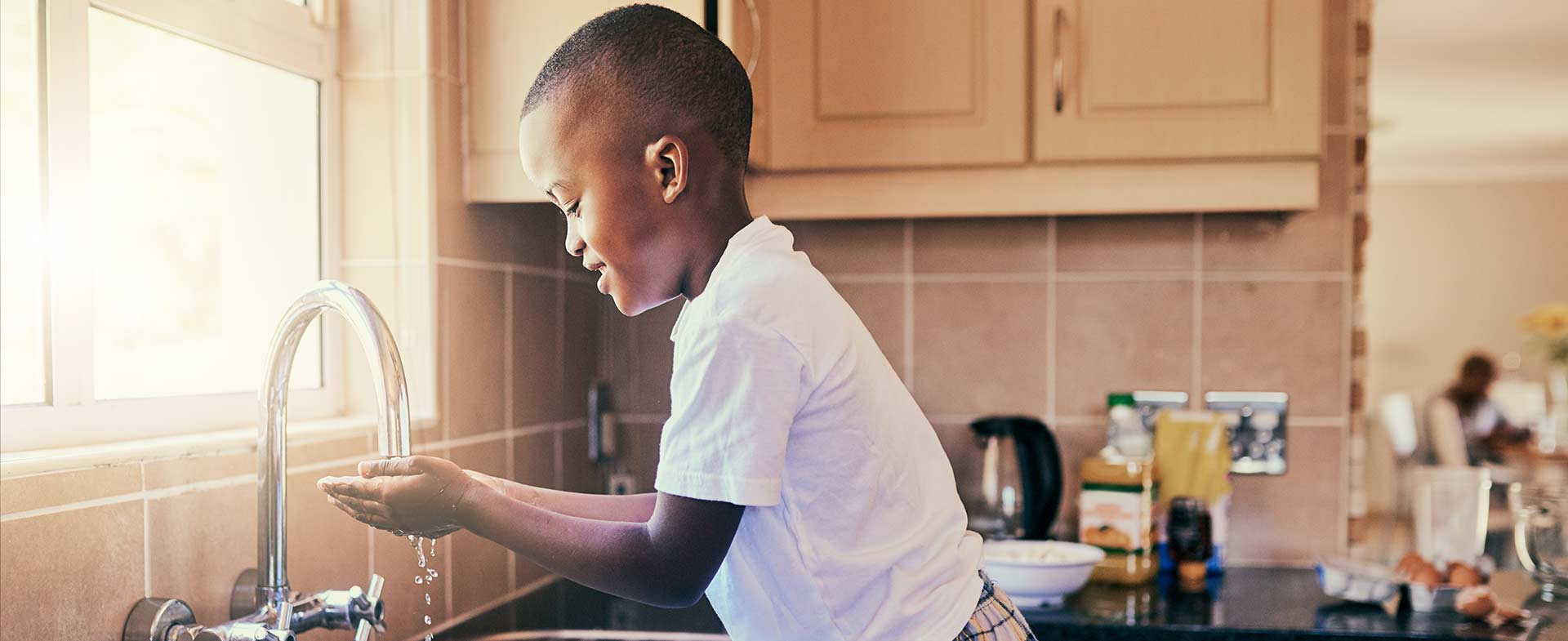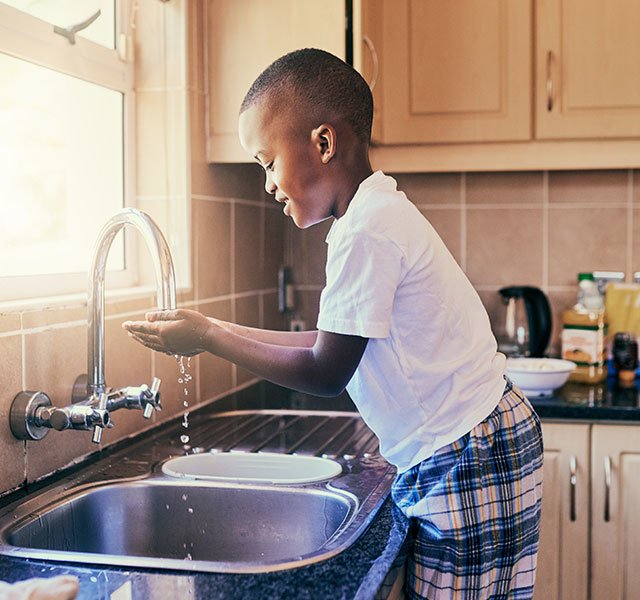After two years of navigating the world in the age of COVID-19, many kids are still on high alert, worried about germs.
"This is one of the few times in history where our children are aware of the health status of other people," says Nakia Allen, M.D., a pediatrician at Henry Ford Health. "In today's world, when one of their friends are absent from school, our kids immediately think, 'maybe it's COVID.'"
The Fear Of Germs
Many kids today have a real fear of germs. Maybe they watched a grandparent, parent or friend suffer through COVID. Or maybe they’ve caught snippets of COVID-related news coverage. Whatever the reason, it's important to create a safe space for kids to talk about their fears and feelings.
"Being aware of children's emotions, and naming them, is something parents have to do more and more," Dr. Allen says. "So you can say, 'I know you're concerned about your friend, or I know your teacher's absence is worrying you.' Then launch into a plan of action to help alleviate the anxiety ."
Kids feel more empowered when they can do something. So, consider making a batch of cookies, creating handmade cards or dropping off a basket of comfort items to someone who is sick. The key is to transition from a sense of hopelessness and dread to a place of action and optimism.
A Germs Explainer
Even if your child knows a thing or two about how illnesses spread, it's always a good idea to spell out the basics.
- What germs are: bacteria and viruses that can make you sick
- How they spread: through respiratory droplets (in the case of COVID) and contaminated surfaces
- And, how to protect yourself from getting sick: through vaccination, hand washing and physical distancing
Of course, how you relay this information will depend on your child's age and developmental stage.
- Preschoolers: Most preschoolers don't remember a time before the pandemic. For these kids, you can stick with the basics: Germs can make you sick – and they can spread. Washing hands (or using hand sanitizer), wearing masks (if they're mandated in your district) and keeping a safe distance can prevent you from catching germs and spreading them.
- School-age kids: You can use a superhero metaphor for school-age kids by painting germs as the bad guys. "The metaphor works because superheroes have masks and capes," Dr. Allen says. "And they do the right thing because they want to protect other people." Then you can explain that washing your hands and staying home when you're sick not only protects others (and themselves), but it also restores their superhero powers. If your child has reached an age where superheroes are no longer cool, consider relating to a character from one of their favorite TV shows or video games (think Minecraft or Fortnight).
- Teens: Teens and young adults often feel invincible — but it's important for them to stay home rather than risk making someone else sick. Still, parents should remember that it's a big deal to miss school when you're in high school. "That socialization and individuation is really important to teenagers," Dr. Allen says. So encourage your child to stay connected with friends by picking up the phone for a real conversation, or even coming together through social media channels like Instagram and TikTok.
Tips For Coming To Terms With Germs
The pandemic is still part of our kids' everyday reality. No matter what their concerns, talking about germs is a topic parents can revisit again and again. Here's how:
- Meet kids where they are. Before you launch into a discussion about what germs are and how to avoid them, find out what your kids already know. "Open with something simple like, 'Tell me what you know about how COVID spreads,'" Dr. Allen says. Then you can build your conversation around their responses.
- Remind them they're not alone. It's important to validate your child's fears and sit with them as they process uncomfortable emotions. The reality is, COVID has forced us to spend more time at home with our immediate family members. Whether you're playing board games or watching family movies, it's always a good idea to point out silver linings.
- Label the feelings. Parenting in the age of COVID is full of messy emotions. Encourage children through your example to name their emotions, especially those related to loss and grief. And don't be afraid to tell your child that you're struggling, too. Then share the ways you can come together to cope with uncomfortable emotions. "That way you're showing your child that you can make it through challenges and become stronger," Dr. Allen says.
Most important, make sure every family member strives to be as safe and healthy as possible whenever they leave home. "Explain to your children that if we don't do a great job of washing our hands and catching sneezes, someone else can get sick," Dr. Allen says.
Subscribe today to receive weekly emails of our latest tips.
To find a doctor or pediatrician at Henry Ford, visit henryford.com or call 1-800-436-7936.
Dr. Nakia Allen is a pediatrician seeing patients at Henry Ford Medical Center locations in Dearborn and Detroit.



